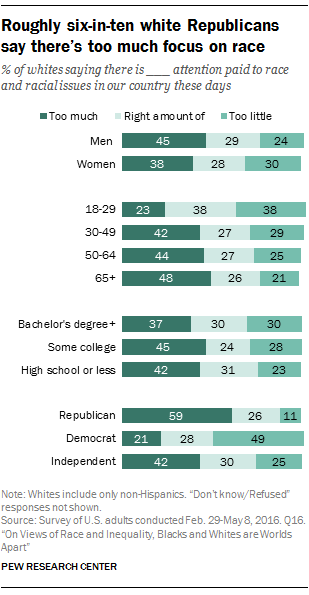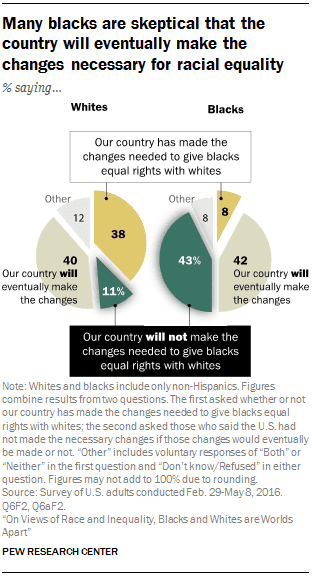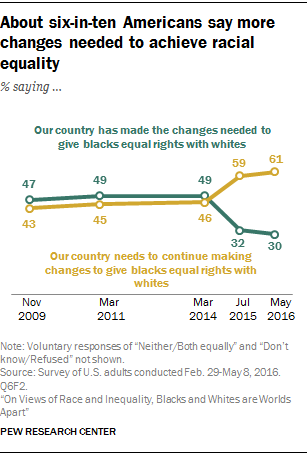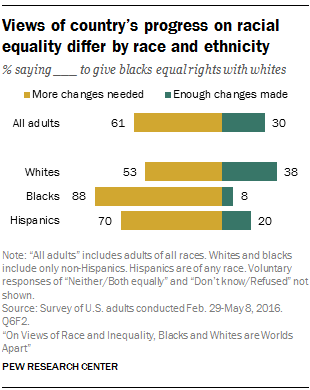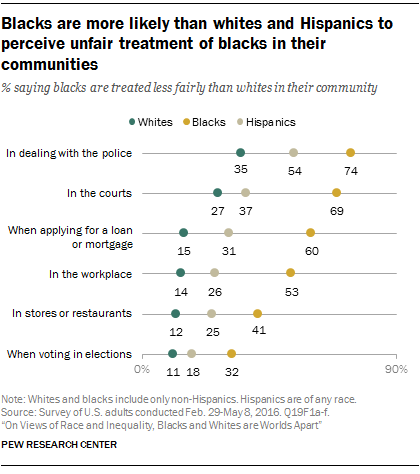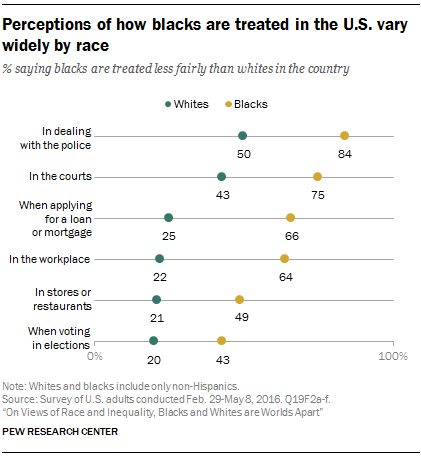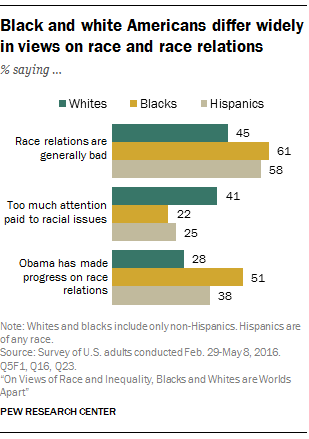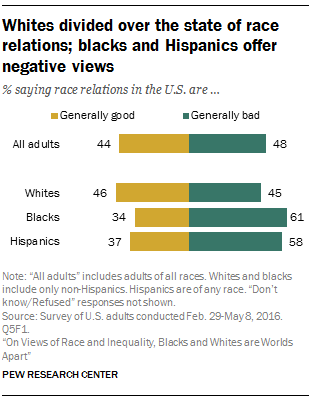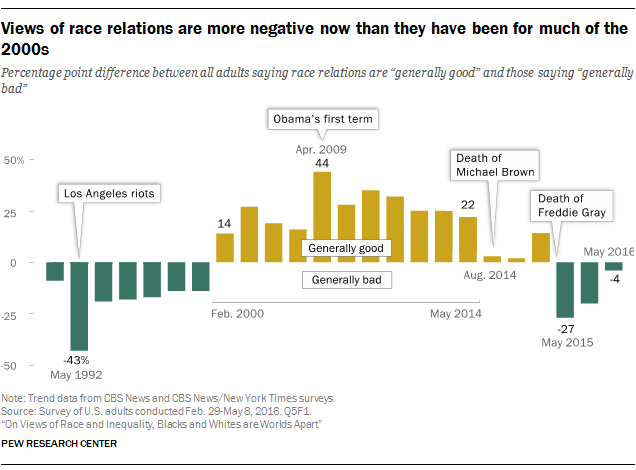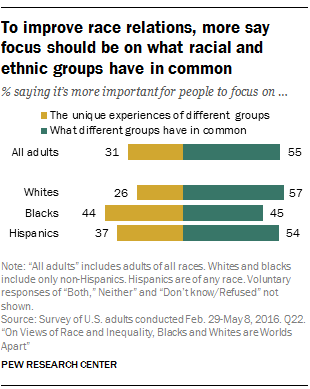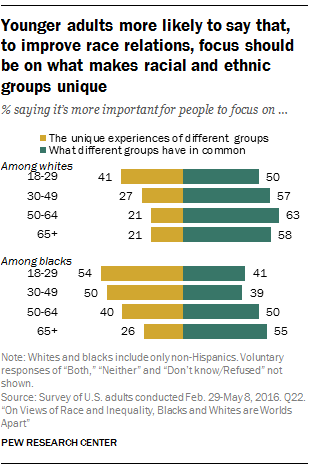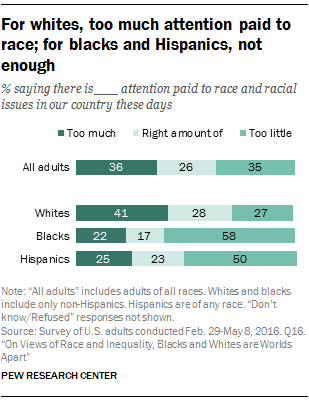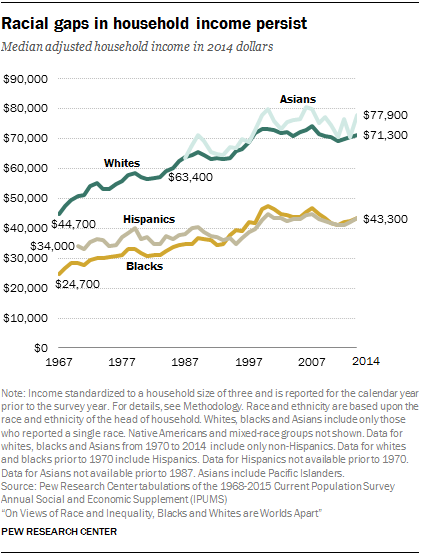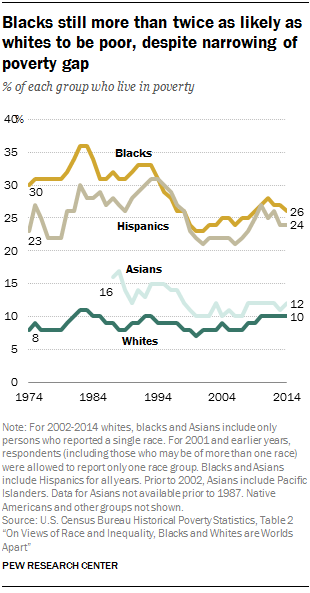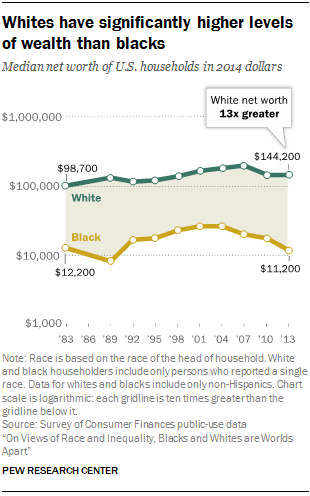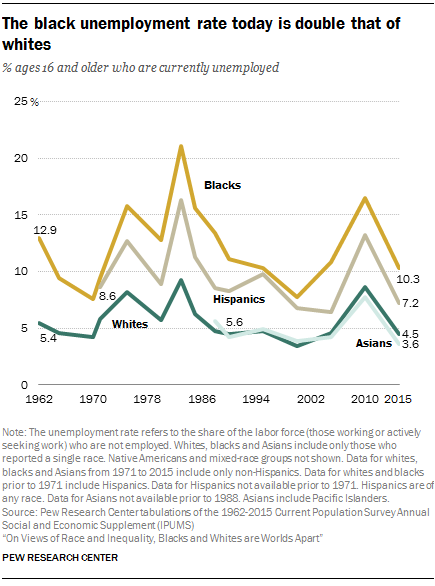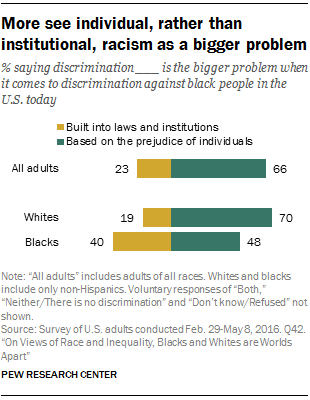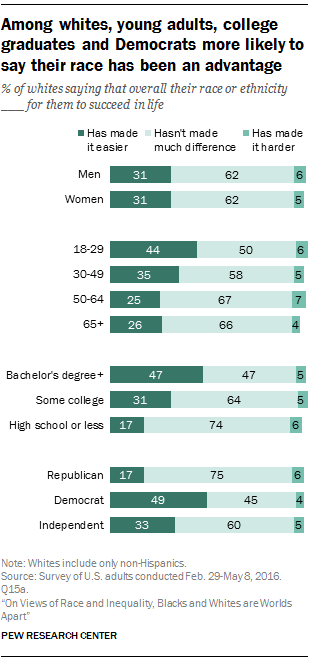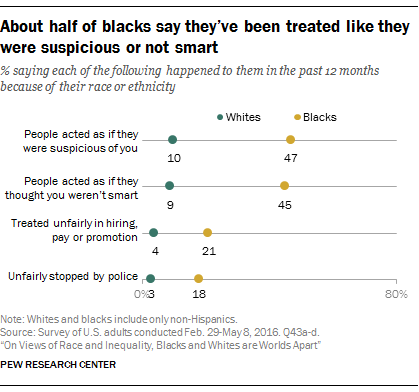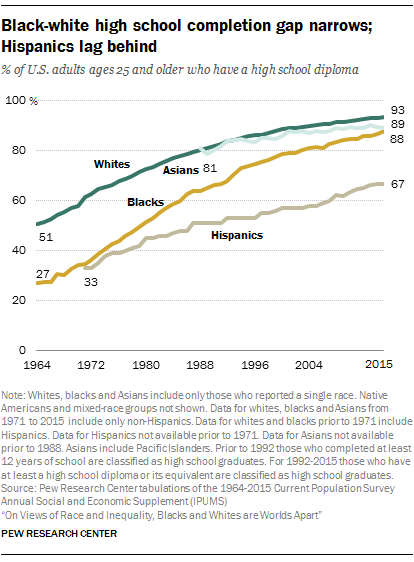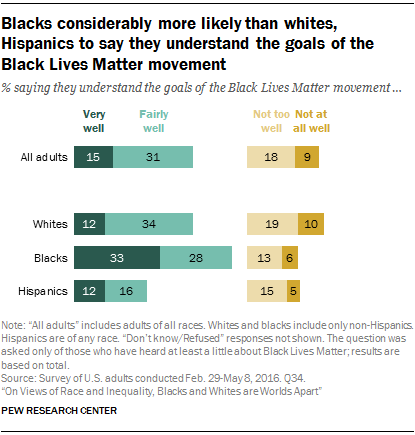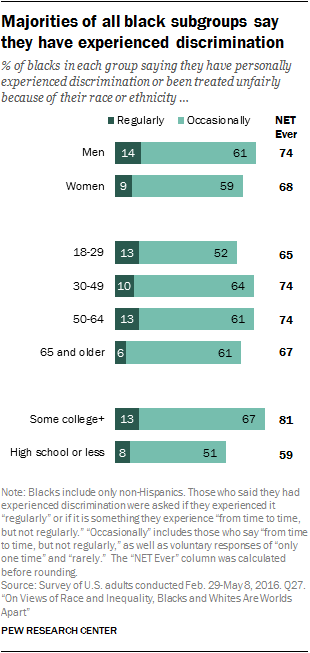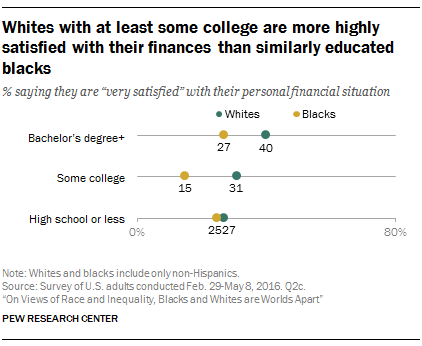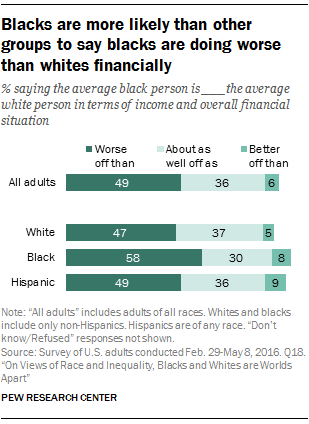Another thing. . . Someone's membership in a particular racial group doesn't guarantee, or even come CLOSE to guaranteeing, that their perception of "the experience of their group" is accurately reflective of the aggregate reality. I can't believe how often I need to explain this concept, these days. People's perceptions aren't shaped by and only by reality, and this applies to non-whites as well as whites. As human beings, we're far more likely to have our perceptions shaped by the words and opinions of the people we trust and admire than we are to have those perceptions shaped accurately by reality itself. Thus, when large sections of various demographics believe in a narrative that JUST HAPPENS to be the dominant narrative in our pop culture, I remain unconvinced, to put it lightly.
One's experience and perception IS their reality.
One's reality is all there is.
No matter what you and I have in common, it would never ever be possible for me to share your reality.
That's a fine piece of sophistry. YOUR "reality" is not my concern, nor should it dictate government action. Majority opinions by ethnic groups don't dictate what has ACTUALLY happened..
If I, personally, decide that Hawaiians are being murdered en masse by the Mexicans because that's my perception, then my perception is inaccurate and thus NOT THE JOB OF SOCIETY TO FIX. That's my point. If your perception of the plight of your ethnic group isn't an accurate reflection of the aggregate reality, then passing laws to correct for that perception is only going to lead to greater problems.
I pray that there aren't many more people like you who openly declare perception as a reality to be corrected by the force of government authority. That's so fucking insane that I don't have a word emphatic enough to replace "fucking".
It appears that you are equating "GOVERNMENT ACTION/AUTHORITY" with "SOCIETY", when they are two completely separate things.
I am equating those two things. They aren't necessarily the same, but I think in this case they are. How does a society make a concerted effort to do anything in particular but by law? Not rhetorical. I could be wrong, but I honestly can't think of any examples of a "society" all focusing on some homogenous goal. The way it generally works seems to be that the mainstream culture evolves for any number of reasons to decide something is bad, and then the government of said society adjusts the focus of its power to reflect that widely held view point.
How does a society make a concerted effort to do anything in particular but by law?
Cultural changes certainly can accrue from non-legal action.
That the "sin tax" on smoking/tobacco products increased was merely incidental to the transformation of smoking from being a very cool thing to do to smoking being considered disgusting and becoming anathema to most people.
Another cultural change is that of decreasing formality attendant to myriad genres interpersonal interactions ranging from highly structured/organized/deliberate interactions to serendipitous ones. We see that manifested in a variety of behaviors, one being people dressing informally in the office.
The office was, until a few decades ago, the last stronghold of fashion formality. Silicon Valley changed that. How did that happen? The "Nike method;" people just did it, and, over time, increasingly more people followed the trend. It took little other than will. It certainly didn't happen by legal action. [1]
The evolution of an increasingly casual culture affected more than just the way we dress at work.
It also changed the way we live at home. Time and time again one encounters
outwardly appearing very traditional dwelling the owners have renovated to align the floor plan with the less formal, "open floor plan," way people gather socially.
That's even happened with very old historic dwellings. Another example of cultural change toward informality appears in how dating happens,
the emergence of the "hook up" culture. A last example I might cite is, of course, the casualness of interactions in venues such as USMB where people unilaterally take communicative liberties with one another that historically one broached only with very close friends and family members, or worse, communicating in ways that one generally is well advised not to in-person. [2]
Above I've illustrated two cultural changes we've watched percolate around the globe. But that such changes have happened doesn't explain how cultural, social change happens. How it happens is vastly more challenging to understand than is simply seeing that it is happening or has, yet how cultural change happens on multiple levels is something social science researchers -- sociologists, anthropologists, psychologists, and economists -- have studied and largely come to understand. There's even a field of study called "cultural evolution." (The documents linked below are just a small sampling of the "thoughtware" on how cultural changes occur, what catalyzes them, what makes the "chicken" precede the "egg" of change and vice versa, etc. If one asks the right question, and actually go look for it, one will surely find the answer -- if the answer doesn't already exist, well, there's an opportunity for renown and wealth.)
The learnings social scientists have made about how cultural change happens have been applied on a lower level to changing organizational processes and cultures. Firms like Deloitte, Accenture, KPMG, McKinsey, E&Y, BCG, Bain, IBM, Kearney, Hay and others earn billions helping clients effect change of myriad types and on scales ranging from transaction processing to enterprise transformation.
Indeed, the large change in attitudes toward tobacco use was one of the early implementations of the principles of change management -- so early that we hadn't yet coined the term "change management" to describe what we were doing -- to effect cultural change.
The tactical component to effecting change is
change leadership, which consists of several things, but the most important is leadership. Rarely is just one leader sufficient. One change "champion" has to coordinate the efforts of a cadre of change leaders, but one person cannot do it alone when the scope of change is that of which I've been speaking in this thread/post. Leaders, no matter how seemingly capable, cannot lead change when the people led don't trust them, and that's where one's character becomes paramount. [3] A key aspect of "world class" leadership is exhibiting what theologians call "humility." In the consulting world it's usually termed as "active listening," which is part of "communication skills." Psychologists call it "empathy." Whatever one wants to call it, it's something at which most folks are lousy. [4] That they are is what makes it hard to identify and emplace apt leaders of change as well as making it hard to implement change.
As a parting thought, I'll note that for reasons I don't fully understand, the human animal is routinely resistant to change. Every other animal on the planet when faced the onus to change, rather than resist it, strives to adapt to it. When humans lost their will and prevailing ability to do that I cannot say. That trait of humanity, reticence for change, reminds me of Karr's wry epigram,
plus ça change, plus c’est la même chose.
Note:
- Now that we've for a couple decades substantively ditched our suits and ties at the office, several researchers have performed empirical studies that measure the impact of "formal" clothing on cognitive analysis. The findings are quite interesting.
- I think one could include the burgeoning of "acronym-words" and emoji/emoticon "words" as part of the increase in casualness we've experienced over the past quindecennial, perhaps vicennial, period.
- Managing/implementing change (process and culture) in multinational organizations is what I spent my career doing. I cannot count the number of times I've had clients -- COOs, CEOs, EVP, etc. -- award engagements to me and my team saying something on the order of, "I don't know really know whether your plan is better than 'so and so's,' but I trust you to put our goals on par with your own, so we're going with your firm."
I know for fact, I'm only as smart and as capable as my competitive peers in the industry -- especially as go the "hard" skills of managing time, resources, people and activities, being structured and organized, product/subject matter knowledge, detail orientation, etc. -- and I know their plans and tactics are have neither more nor less potential to succeed than the ones my teams and I develop. The fee structures also aren't materially different, though we, and my projects in particular, tend to be a bit more expensive than average. The relationship -- character, unsurpassed integrity and honesty demonstrated by every key member of our team being what established the nature of the relationship -- is what made the difference.
- In saying folks are lousy at active listening I'm not criticising them, at least not in this post am I. It's merely attesting to something that, though not wonderful/positive, nonetheless is. It's something to mitigate by taking the theories (science sense) of what makes change happen organically and then applying that knowledge (effecting principles of change management) to deliberately make change happen in instances whereby it otherwise would not have occurred, or would not have occurred as coherently and quickly. (Mind you, "quick," with regard to some scales of change can mean a decade or two. Adoption of recycling is one example.)
Most people see/hear (seeing is, paradoxically, part of active listening), no matter what's actually said, something that aligns with their "world view." When they don't hear such, if they they think they can, they'll try to fit the "square" they heard, and the source from which the message came, into the "round hole" that is their "world view." Barring that, they simply resist. (I know that reads like a "transactional" statement, but it's not.) The first change that has to happen is getting the person, people, to change themselves into "active listeners." There're many reasons why people do that, but here what's relevant is that they do it.
There is, of course, an upside to the fact that most people are lousy active listeners: if one is among the comparatively small quantity of people who are very good active listeners, very knowledgeable about theories of change, very capable with converting abstract knowledge into action, there's a good living ("one percenter-anywhere-in-the-country" good) to be made at doing so.
